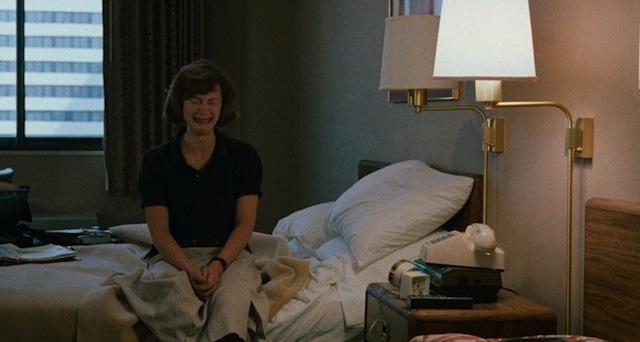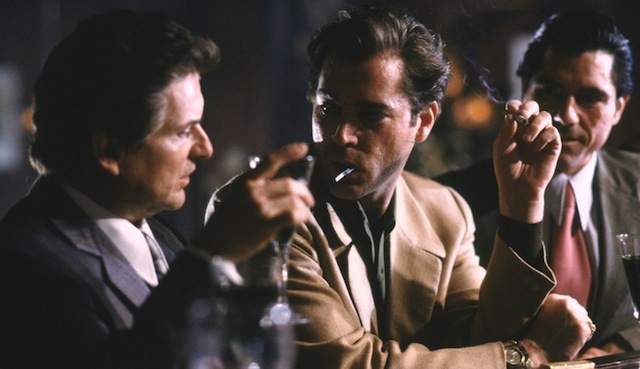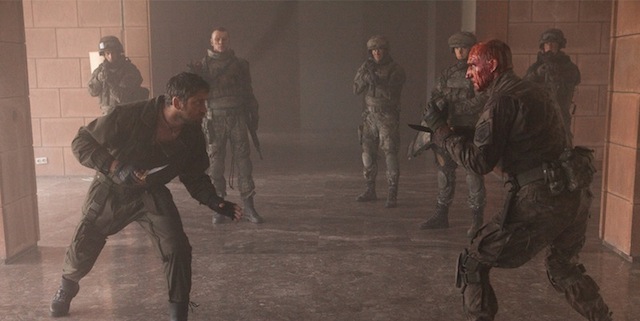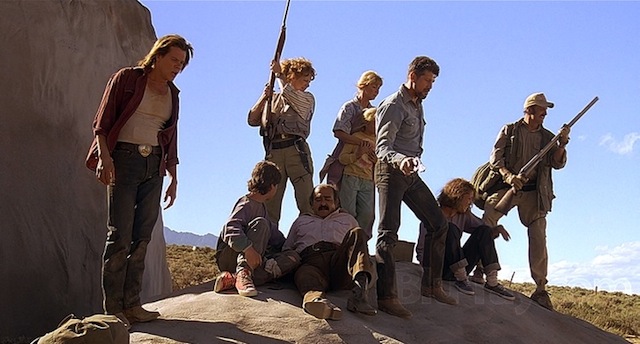These have been piling up. Time to unleash them on the internet public!
Broadcast News
1987. Directed by James L. Brooks

Broadcast News plays out like a modern day Jane Austen novel in its social perceptiveness and its wit. Writer/producer/director James L. Brooks has his finger on the pulse of his times, and he delivers a funny and biting yet dramatic and sympathetic look at the television news business of the late 1980’s. The film focuses on the relationship of three mature yet flawed individuals working together at a Washington news station: the producer, played by Holly Hunter, the writer, played by Albert Brooks, and the announcer, played by William Hurt. These three rely deeply on one other, developing friendships, clashing emotionally, and engaging in a constant debate over the ethics of television: what is and is not news, what can and cannot be manipulated, if and how announcer star power hurts the industry. All three actors are brilliant, but Hunter especially shines as an overachieving, emotionally stressed out miniature dynamo of a woman. Her life is her work and she struggles to differentiate the two. She’s so stressed out that she bawls her eyes out for twenty seconds every morning. She has two men in her life, Brooks, the selfish, self-deprecating best friend and Hurt, the kind and charming yet power hungry new hire. How these two men relate to her and how she reacts to them is the heart of the film, and through all the muddy power politics of television a terribly realistic, bittersweet story of love, hurt and forgiveness unfolds. It’s really quite a breathtaking film to watch and by far the meatiest bit of screenwriting I’ve seen in a long time. It made me re-think the power of the cinematic drama. They rarely make ‘em like this these days.
Goodfellas
1990. Directed by Martin Scorsese

Like the Godfather, Goodfellas examines the dark, murderous world of Italian Mafioso crime in America. It displays the familial ties, the sense of camaraderie and brotherhood, the girlfriends, wives and children, the meals and card games, and the sudden, brutal backstabbing violence. Unlike The Godfather it brings these truths home to a much more real-feeling 1970’s and 80’s world, where there’s no haze of political uncertainty or romantic nostalgia hanging over the proceedings. Goodfellas is a much darker, cynical film than the Godfather. Through intricate narration based on true-life events it shows the utter despair of the criminal life, the cold-hearted souls of men who have murdered so many times that they can kill a man for a mere triviality and then self-righteously explain it away. This is the true heart of darkness. It may be gloomily entertaining and intriguing to look at, but not one shred of romanticism exists in it. It leaves a bad taste in your mouth. This is true crime. This is the real thing and it’s basically terrifying.
Coriolanus
2011. Directed by Ralph Fiennes.

Corolianus is a Shakespeare play I wasn’t familiar with, and it was exciting to see it without knowing the ending. Abridged, slightly modernized and set in a modern war-torn land somewhere in eastern Europe, Shakespeare’s work is as powerful as ever, lovingly crafted by star and director Ralph Fiennes. Fiennes is overwhelmingly powerful as the selfless and heroic yet overly prideful general Corolianus, who, after returning from bloody war with his arch rival, is elected consul over his people but refuses to pay them an ounce of respect. The film is less a Shakespeare adaptation as a film based on a Shakespeare play. Whole scenes play out only in action, and visuals and music often stand in for narration. It’s perhaps the most purely cinematic Shakespeare I’ve ever seen, and a real joy to watch. A slew of other great actors fill out the cast, most notably Vanessa Redgrave as Coriolanus’s noble mother, who just about steals the show.
Mad Max
1979. Directed by George Miller

Mad Max is a supposedly legendary film. I found it almost unwatchable. An uber low budget production attempts to turn a few small Australian towns and some country roads into a sci-fi wasteland, and fails miserably. A couple muscle-bound dudes is bright yellow speedsters scowl a lot and ham it up as future cops. They drive around too fast and crash a lot and wear weird leather uniforms. One of them is future superstar Mel Gibson, with a badly dubbed American accent that occasionally slips back into Aussie. The plot makes little sense. You see, this ridiculous motorcycle gang, led by the most embarrassingly laughable villain ever captured on film, want revenge after one of their own steals a cop car, goes on a joy ride spewing what sounds like the biker gang version of the book of Revelation, loses control and and crashes in a fiery explosion. Why this gang blames the cops for their friend’s foolish accident is unclear. Mostly Gibson smooches with his wife and criminally neglects his two-year-old child. Every once and a while a random act of violence occurs for no reason. There’s a grandma with a huge rifle, a long scene of pointless dialog with a tire salesman, a random chase through a seemingly haunted pine forest, and finally a strangely rushed last few minutes of no-more-mister-nice-guy revenge epic. I could see this being an ambitious student film maybe, but a internationally released blockbuster? People must have been really bored that summer.
Tremors
1990. Directed by Ron Underwood

This is just a darn fun movie. It’s like Jaws, but it’s in the desert! What’s not to love? The acting is great, the effects are cheap and goofy but believable, and the monsters are just plain cool. The concept is an obvious rip-off from the Dune series, but walking with or without rhythm doesn’t matter here. If you create any kind of vibration, you’re basically toast, which makes for both scary and exciting sequences. I admired the directors choice of avoiding gore and a high body count. It was surprising and a refreshing change from most modern monster flicks. Tremors is scary, but it’s more of an adventure than a horror film. I highly recommend it.
